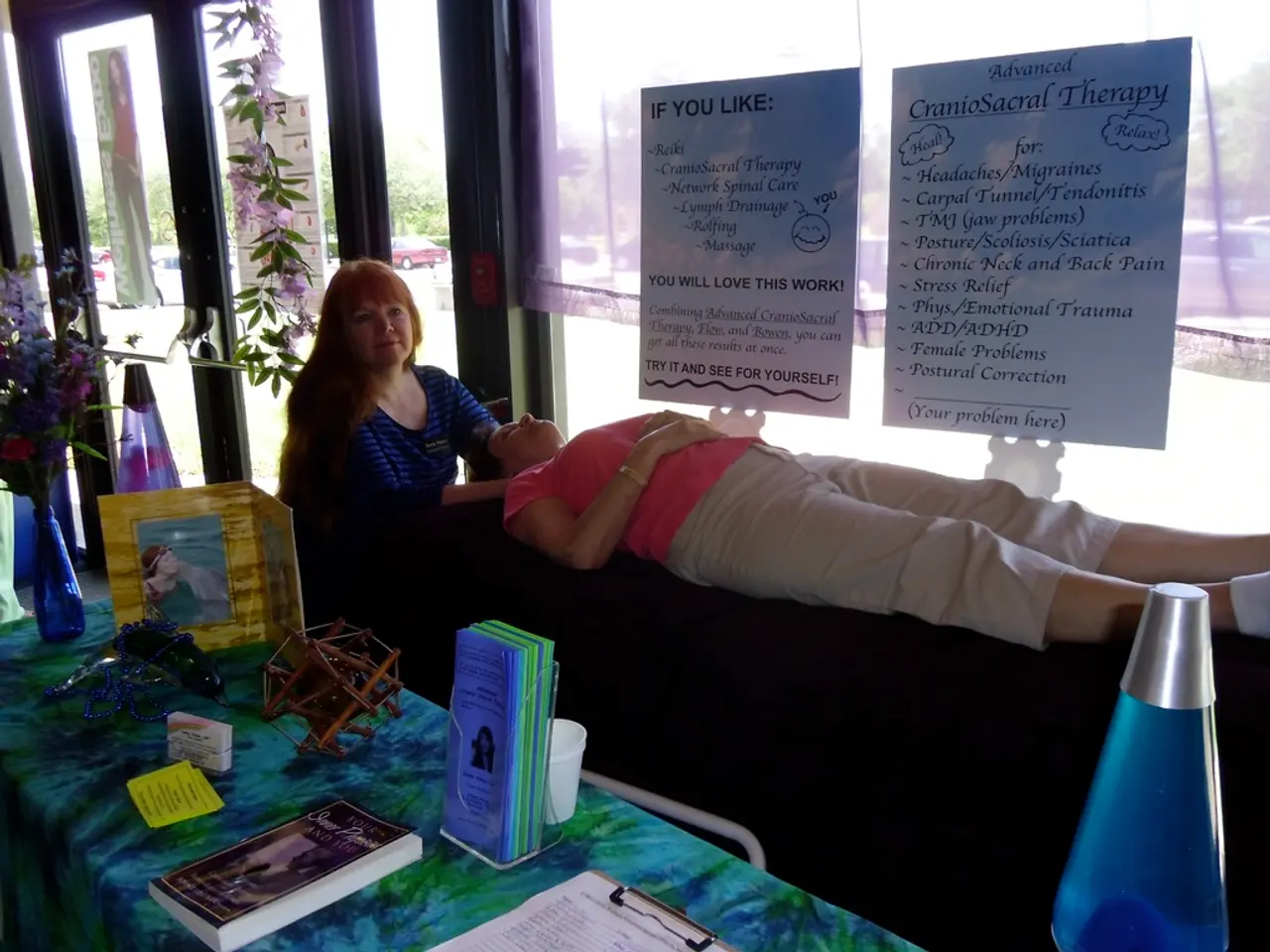Brain's Response to ASMR: Unraveling the Science Behind the Calming ASMR Sensation
In the realm of wellness and relaxation, a unique phenomenon known as Autonomous Sensory Meridian Response (ASMR) has been gaining recognition. This response, triggered by certain sensory experiences, is associated with improved stress regulation and better stress management.
ASMR, which stands for Autonomous Sensory Meridian Response, is a highly individualized experience. Some people find nature sounds relaxing, while others may find it ineffective. Regardless, it is a response towards a sensory experience that some people find pleasant.
A study by Poerio, Blakey, Hostler, and Veltri (2018) characterized ASMR by reliable changes in affect and physiology, indicating its potential as a tool for promoting wellbeing [4]. Another study by Eid, Hamilton, and Greer (2022) investigated the association between ASMR, neuroticism, and trait & state anxiety [1].
The physiological responses associated with ASMR are significant. Studies show that it can lead to reduced heart rate, relaxation of facial and body muscles, and a steady breathing rhythm, all indicative of decreased stress levels and increased feelings of calmness [2].
ASMR has shown promise in alleviating anxiety. Recent research suggests that it can help reduce stress and provide relaxation, which positively impacts mental health [3]. Furthermore, ASMR has been explored as a potential intervention for mental fatigue recovery, improving immediate behavioral performance and altering brain dynamics [3][4].
While there is less direct research on ASMR and sleep, its ability to induce relaxation and reduce stress can potentially benefit sleep quality. The calming effects of ASMR may help individuals prepare for sleep by creating a conducive environment for relaxation [2].
The neurological basis of ASMR is still being explored, but brain scan studies suggest that it activates the reward system and the brain area that promotes self-awareness and emotional responses [6]. EEG research indicates that ASMR can alter brain dynamics, contributing to relaxation and improved cognitive performance [3][4].
L-theanine, a nutrient from green tea, can increase the relative concentration of the relaxing brain chemical GABA, promoting calmness without drowsiness. Taking 100mg 5-HTP supplement can also improve your happiness brain chemical, serotonin.
As research on ASMR continues, it is being compared to the phenomenon of musical chills. ASMR is linked to being present in the moment, also called mindfulness. Brain areas associated with sleep are activated by ASMR, potentially aiding in sleep promotion [6].
A survey of over 400 participants found that 80% of those who experienced ASMR said it improved their mood [5]. Over 87% of participants view ASMR as a means to promote sleep [7].
The study by Woods and Turner-Cobb (2023) investigated student experience of ASMR to promote health and mental wellbeing [7]. Those sensitive to ASMR reported an increase in positive emotions after watching a short ASMR video.
While the scientific evidence supporting the benefits of ASMR for relaxation, mood improvement, and sleep is emerging and growing, further research is necessary to solidify these findings. The current evidence supports ASMR as a novel intervention for relaxation and mental health, but more comprehensive studies are needed to fully understand its effects on sleep and long-term mental health outcomes.
- In the context of education and self-development, the study by Woods and Turner-Cobb (2023) investigates the impact of ASMR on student health and wellbeing, suggesting its potential use as a novel intervention for relaxation and mental health.
- ASMR, often linked to mindfulness, has shown promise in improving mental health by alleviating anxiety, reducing stress, and providing relaxation, which are crucial elements of personal growth and overall wellbeing.
- The neurological basis of ASMR is still under exploration, but it has the ability to activate the reward system and the brain area that promotes self-awareness and emotional responses, which connects it to the realm of science, specifically brain development and mental health.




